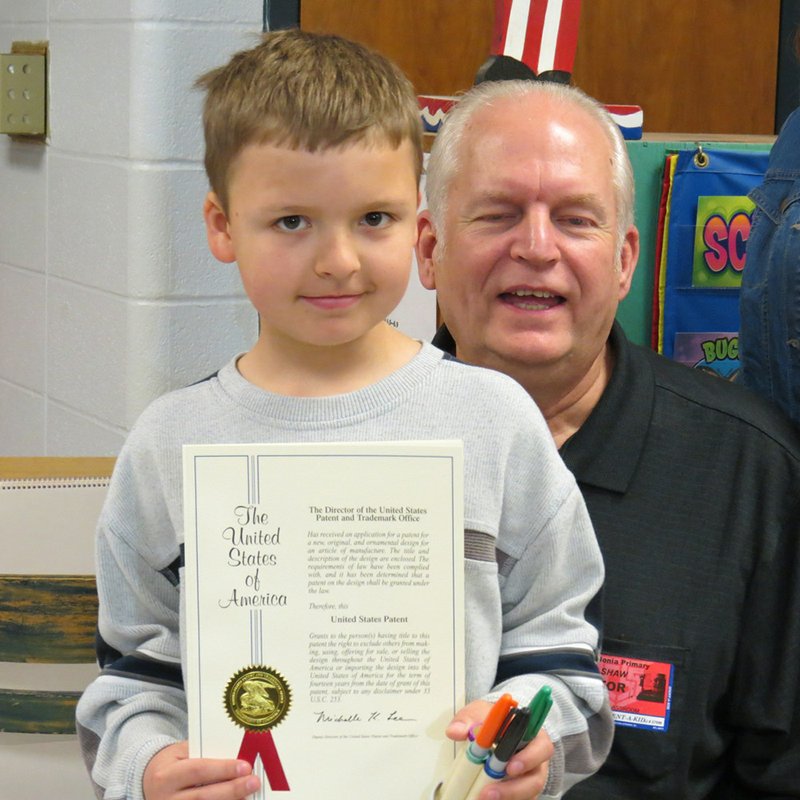VILONIA — Teacher Elizabeth Sowell of Vilonia Primary School challenged third-graders during the last school year to invent a product using items from their homes. One student, Zane Parker, took the assignment a step further and received a United States patent on his handmade desktop organizer.
Sowell announced the achievement, this week at the school, with Zane’s parents, James and Jennifer Parker, and grandfather David Shaw in attendance. It wasn’t a surprise to Shaw, however, since he helped Zane along the way.
“Zane, now a fourth-grader, has and holds a United States patent on a pickle lid and plastic pipes that are perfect for holding pens and pencils,” Shaw said.
He showed the product to the 50 or so people gathered for the event and detailed the work. The first step for the two, Shaw said, was to talk, in detail, about the assignment handed down by Sowell.
“The key to inventing something is to open your head to exploring what someone needs,” Shaw said. “We went to my house and sat down at my desk. We knew we wanted to make something simple and something that would be useful. We opened the drawer on my desk, and it was a big mess with colored pencils. We started talking about an idea. Then we went to my shop. Sometimes, inventors work together on projects.”
Glancing around the shop, he said, they realized they had all of the recyclables on hand to complete the holder. All they needed to do was measure, cut and glue.
Shaw, an engineer for PerfectVision Manufacturing in Little Rock, talked about the project in his workplace and decided to help Zane achieve the design patent.
“I am fortunate to work for a company that has an attorney on staff, and when I discussed the project, he volunteered his services to pursue the matter further,” Shaw said. However, he also said the application does not preclude anyone from applying for a patent without the use of an attorney.
Shaw explained the difference in two types of patents. A “utility” patent is protection by U.S. law for the way an invention works, he said. A “design” patent is legal protection for the ornamental appearance — the look — of an invention. Zane received a design patent. If you have a design patent, Shaw said, for a period of 14 years, you are the only person who can legally market in the U.S. a device that looks like the invention.
Design patents are realistically not too hard to get, Shaw said. Utility patents are very complicated and exponentially more difficult to obtain, he added.
Shaw encouraged the third- and fourth-grade students to think about a career as an inventor.
“If you look me up on Google, you will see under my name the word inventor. I like that job. I get paid to think about stuff and to try to come up with ways to make it.”
